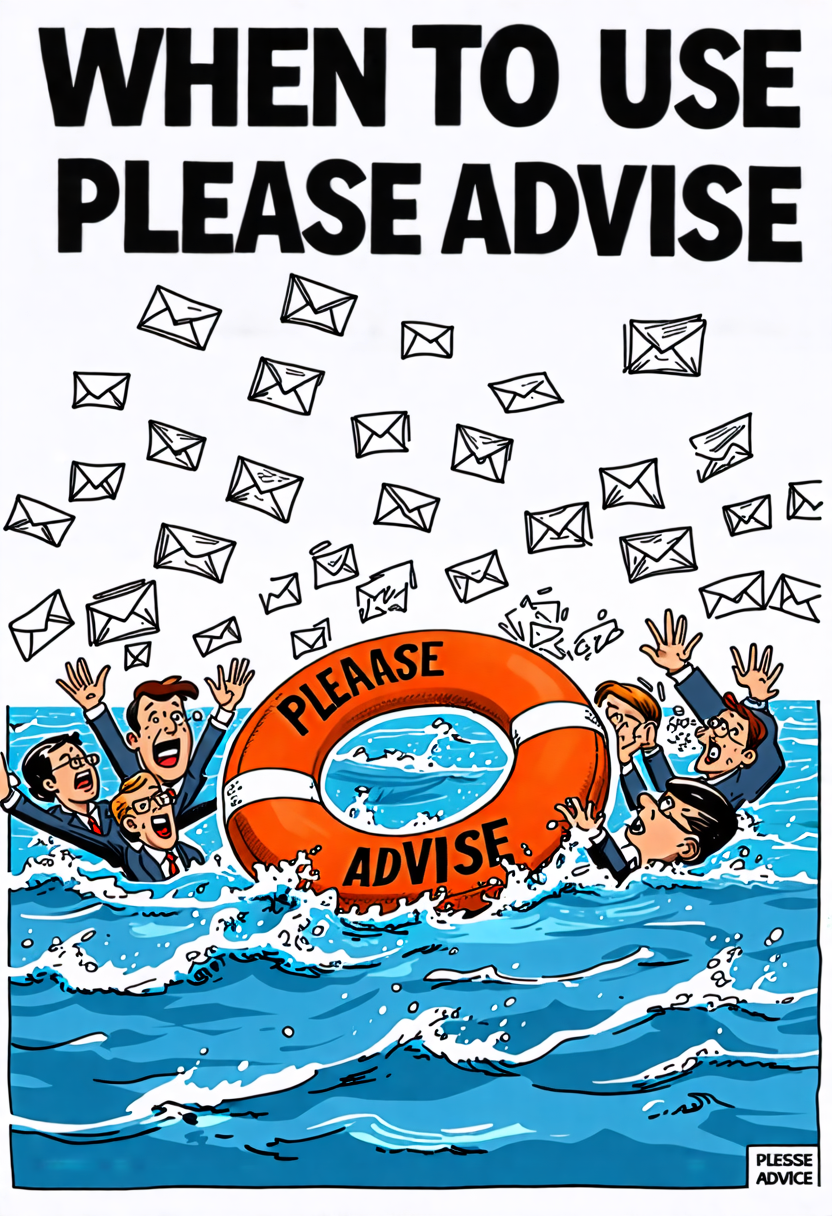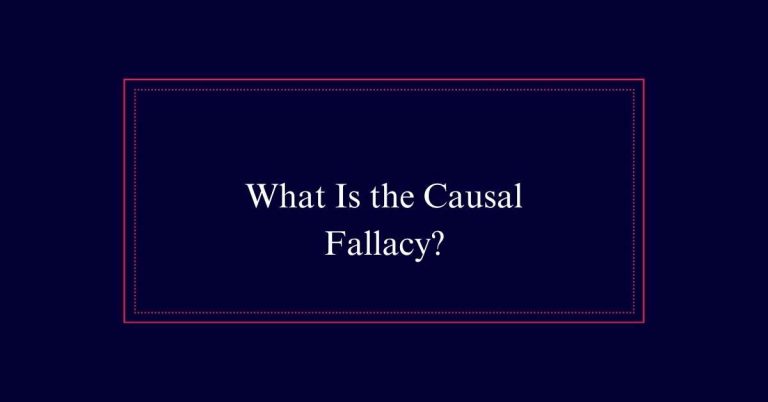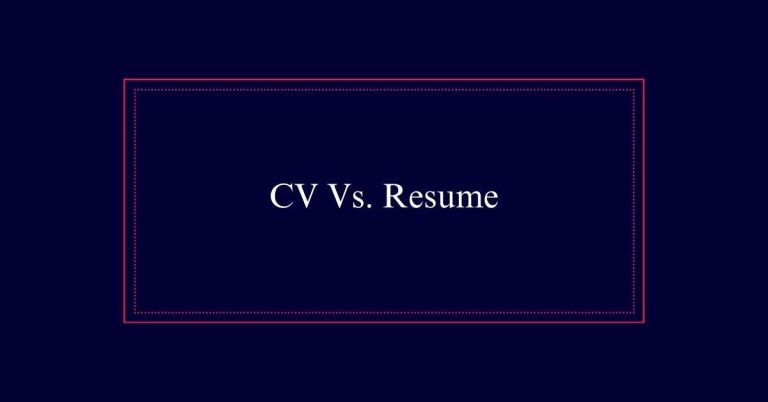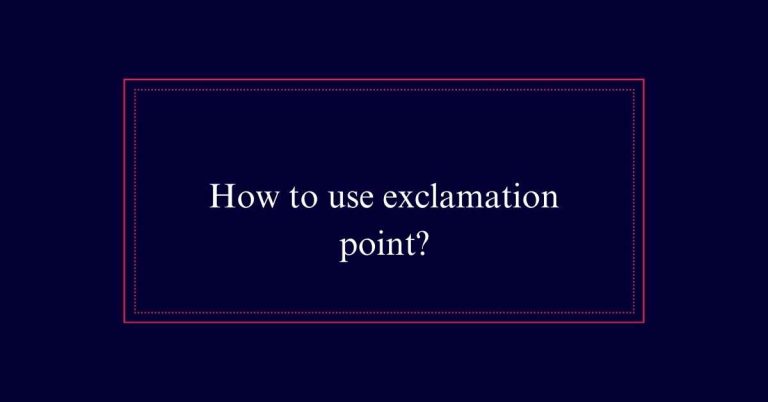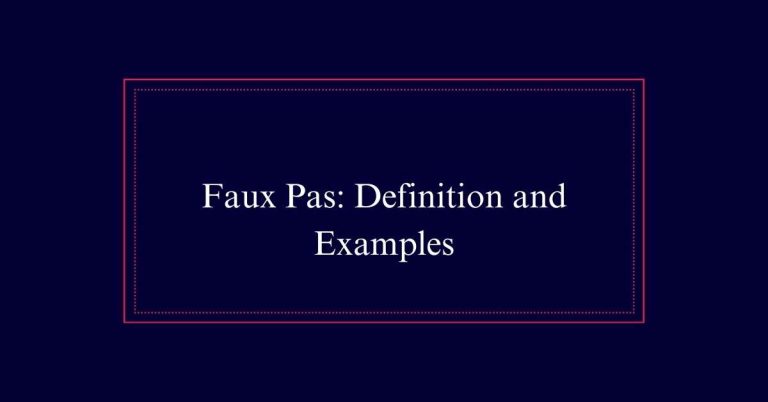When to Use Please Advise?
‘Please advise’ is typically used in professional communication to ask for information, feedback, or guidance. Appropriate scenarios include seeking clarification, requesting assistance, or asking for a decision. The phrase can be perceived as formal, so context and tone are important.
Alternatives like ‘Could you please provide guidance on…’ might offer a softer tone. Be aware that overuse or lack of clarity can make it seem passive-aggressive. Tailoring your request to fit the situation enhances communication.
Meaning of ‘Please Advise’
The phrase ‘please advise’ typically means requesting information, feedback, or guidance. It is often used in professional communication to prompt a response. When someone writes ‘please advise,’ they are seeking clarity or direction on a specific issue.
This phrase can be understood as a polite way to ask for help or input. It can mean ‘let me know,’ ‘get back to me,’ or ‘provide your thoughts.’ While the intention is generally clear, the tone of the overall message can influence how it is perceived.
In emails, it can sometimes come across as demanding or impatient. Understanding the precise meaning and appropriate use of ‘please advise’ is important for effective and courteous communication.
Contextual Interpretations
Understanding the precise meaning of ‘please advise’ necessitates examining how its interpretation can vary based on context. For instance, an email ending with ‘please advise’ can convey different messages depending on the preceding content and tone.
Here are three contextual interpretations to take into account:
- Request for Information: When seeking specific answers or data.
- Seeking Input: When desiring someone’s opinion or feedback on a matter.
- Waiting for a Response: To prompt the recipient to get back with a response.
The context in which ‘please advise’ is used shapes how it is received. In formal settings, it may be seen as a polite request. In casual exchanges, it might come off as terse or passive-aggressive. Understanding these nuances is important for effective communication.
Email Ending Nuances
When ending an email, the choice of words can greatly impact the tone and clarity of the message. It’s important to ponder how different phrases might be interpreted by the recipient.
For instance, ‘please advise’ can sometimes come across as formal or even curt, depending on the context. Alternatives like ‘let me know’ or ‘I look forward to your response’ offer a softer and more approachable tone. These options can help guarantee your request is clear without seeming demanding.
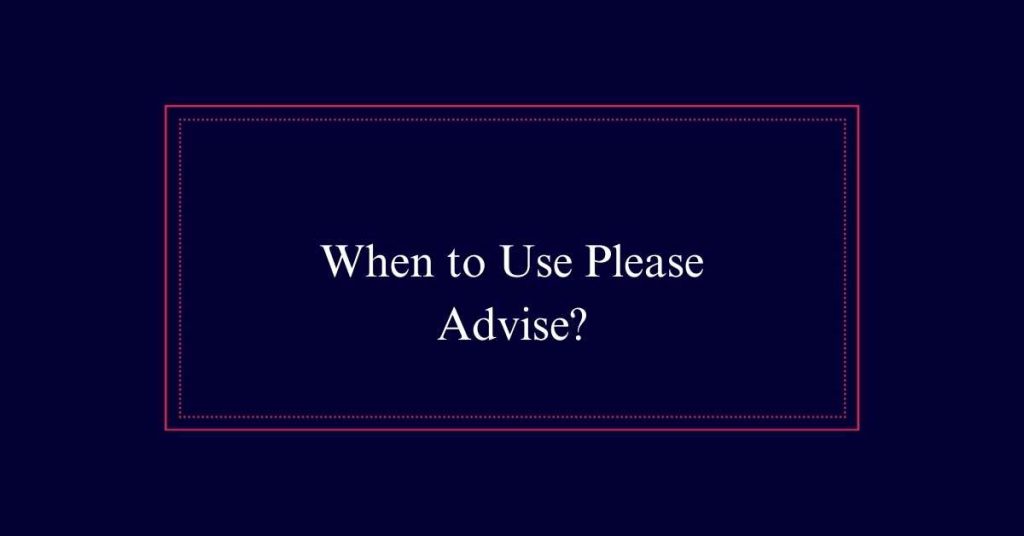
Additionally, expressions like ‘thanks for your help’ add gratitude and politeness. Tailoring your email ending to the recipient and situation can improve communication and foster a positive interaction.
Tone and Perception
Tone and perception play significant roles in how ‘please advise’ is received by the email’s recipient. The phrase can be interpreted differently based on the email’s overall tone. A friendly tone might make ‘please advise’ seem like a simple request for help. Conversely, a terse tone could make it feel demanding or impatient.
Consider these perceptions:
- Formal and Respectful: Using ‘please advise’ in a formal tone can convey professionalism.
- Casual and Collaborative: In a casual setting, it may seem like a polite way to request input.
- Urgent and Direct: In urgent communications, it emphasizes the need for a quick response.
Understanding these nuances helps make sure your message is received as intended.
Passive-Aggressive Concerns
While tone and perception are important, another key consideration is the potential for ‘please advise’ to come across as passive-aggressive. This phrase can sometimes seem curt or demanding, leading to misunderstandings. It may give the impression that the sender is impatient or frustrated, even if that is not the intent.
To better understand this, consider the following scenarios:
| Scenario | Perception |
|---|---|
| Clear request with context | Professional |
| Brief, vague request | Passive-aggressive |
| Repeated use without response | Frustrated/Impatient |
In professional communication, clarity is vital. Ensuring that requests are specific and polite can prevent your message from being misinterpreted. Careful choice of words can maintain a positive tone and foster constructive dialogue.
Modern Workplace Alternatives
In a modern workplace, alternative phrases to ‘please advise’ can enhance clarity and foster a more positive tone in communication. Clear and specific requests help avoid misunderstandings.
Consider using the following alternatives:
- ‘Could you provide your thoughts on this?’ – This invites input while showing respect for the recipient’s expertise.
- ‘What are the next steps?’ – This directly asks for guidance, making the request straightforward.
- ‘Please let me know your decision.’ – This is clear and courteous, indicating that a response is needed.
These alternatives maintain professionalism while promoting a collaborative atmosphere. They make sure your message is polite and clear, avoiding any unintended passive-aggressive undertones.
Formal Alternatives
Considering formal communication settings, several alternatives to ‘please advise’ can convey your request more effectively. For instance, you can use ‘Could you provide your feedback?’ to seek a detailed response.
Another effective phrase is ‘I would appreciate your input on this matter,’ which adds a polite touch.
Additionally, ‘Kindly inform me of your decision’ is a clear and courteous way to request specific information.
‘Please let me know your thoughts’ is also a straightforward substitute that maintains professionalism.
Each of these alternatives guarantees clarity and respect in your communication. Selecting the right phrase depends on the context and the nature of your request, aiming for both precision and politeness.
Grammar Considerations
Understanding the grammatical nuances of ‘please advise’ is crucial for effective communication. Here are key points to take into account:
- Context Matters: The phrase should align with the email’s tone and content. Misalignment can lead to misunderstandings.
- Redundancy Risk: Some experts believe ‘please advise’ can be redundant. Make sure it adds value to your message.
- Object Requirement: Grammatically, ‘advise’ typically needs an object. However, in professional settings, the object is often implied and understood.
Verb Vs. Noun Confusion
The phrase ‘please advise’ often leads to confusion between the verb ‘advise’ and the noun ‘advice’.
‘Advise’ is a verb meaning to give a recommendation. ‘Advice’ is a noun referring to the recommendation itself.
When using ‘please advise,’ you are asking someone to provide their recommendation or input. This request can be important in context, but the potential for confusion remains.
It’s vital to use each word correctly to maintain clarity in communication. Misusing these terms can make your message unclear.
To avoid this, make sure you are asking for advice (the noun) or requesting someone to advise (the verb) you. This distinction helps in delivering a precise and professional message.
Appropriate Usage Scenarios
In professional communication, ‘please advise’ is most effective when you clearly need guidance or specific input from the recipient. This phrase is particularly useful in scenarios where the next steps are unclear or where expert opinion is required.
Here are three appropriate usage scenarios:
- Seeking Clarification: When instructions are vague or incomplete, use ‘please advise’ to request more detailed information.
- Decision-Making: When faced with multiple options or uncertain paths, ask for advice to help in making an informed decision.
- Status Updates: When awaiting updates on a project or task, ‘please advise’ can prompt the recipient to provide the latest status.
Frequently Asked Questions
Can ‘Please Advise’ Be Used in Casual Conversations?
“Please advise” is generally more suitable for formal communication. In casual conversations, it may come across as overly formal or stiff. Instead, consider using simpler phrases like “let me know” or “what do you think?”
Can ‘Please Advise’ Be Used in Text Messages?
Yes, “please advise” can be used in text messages. However, consider the tone and formality of your communication. In casual or friendly texts, simpler alternatives like “let me know” may be more appropriate.
